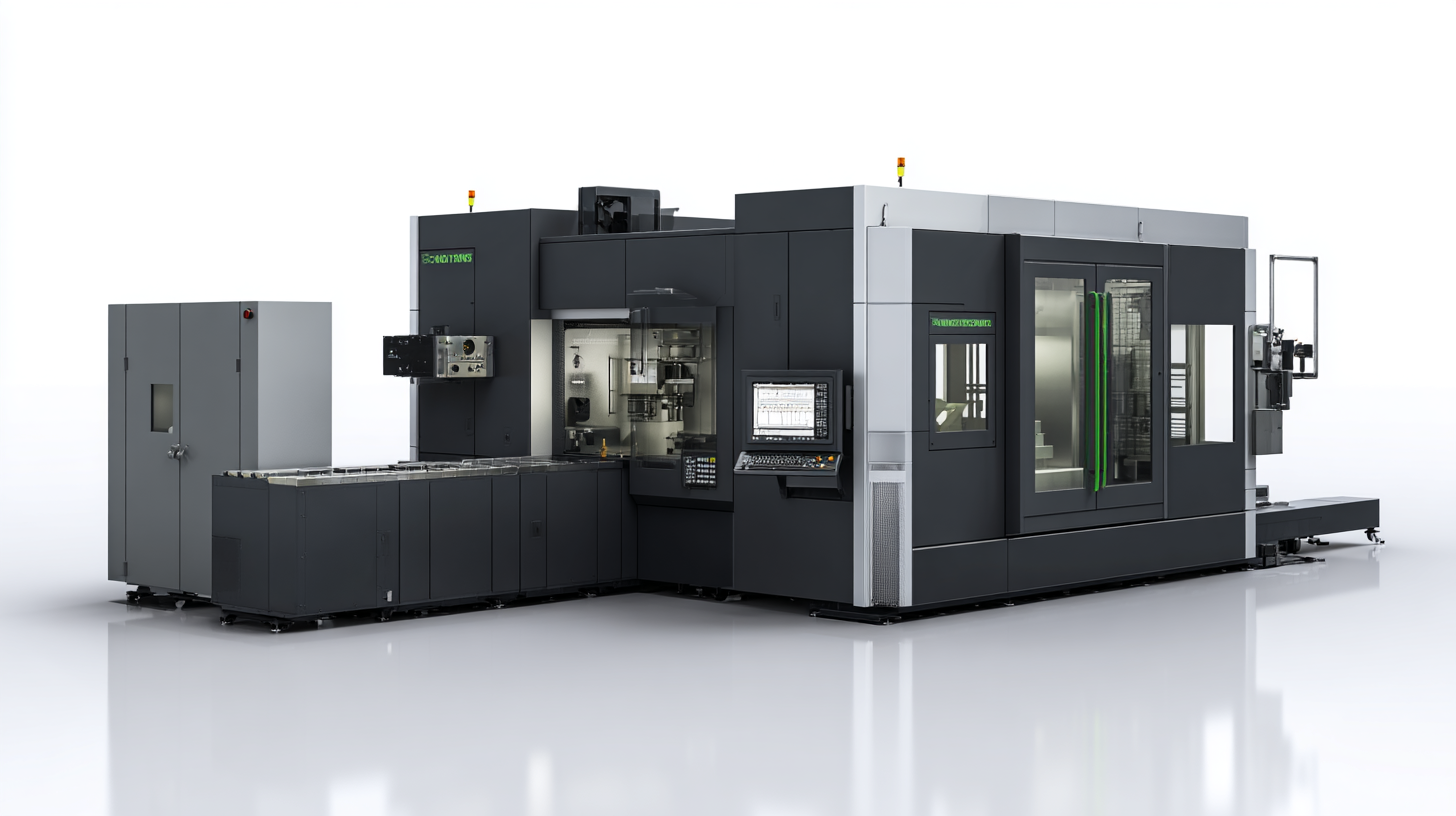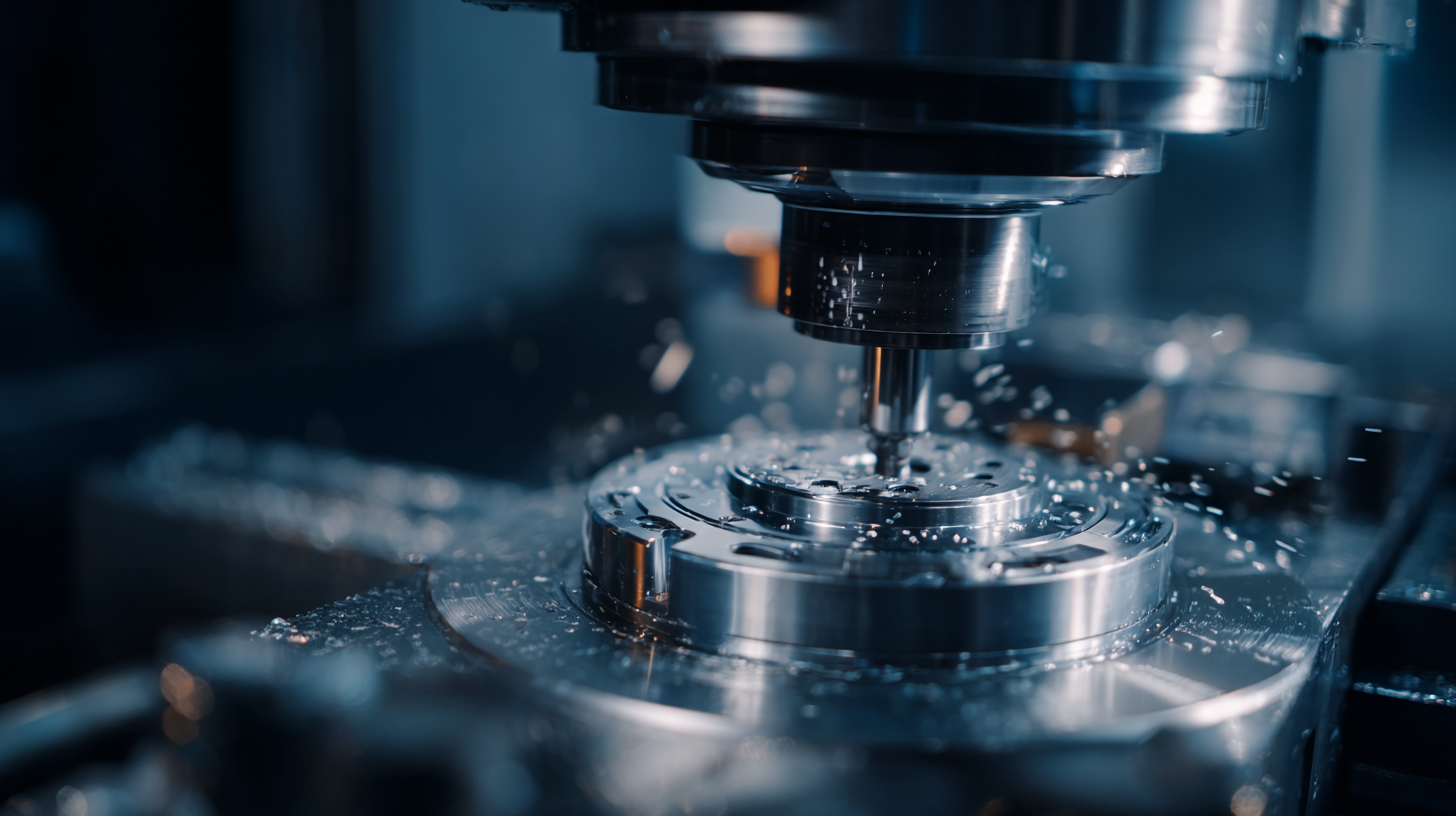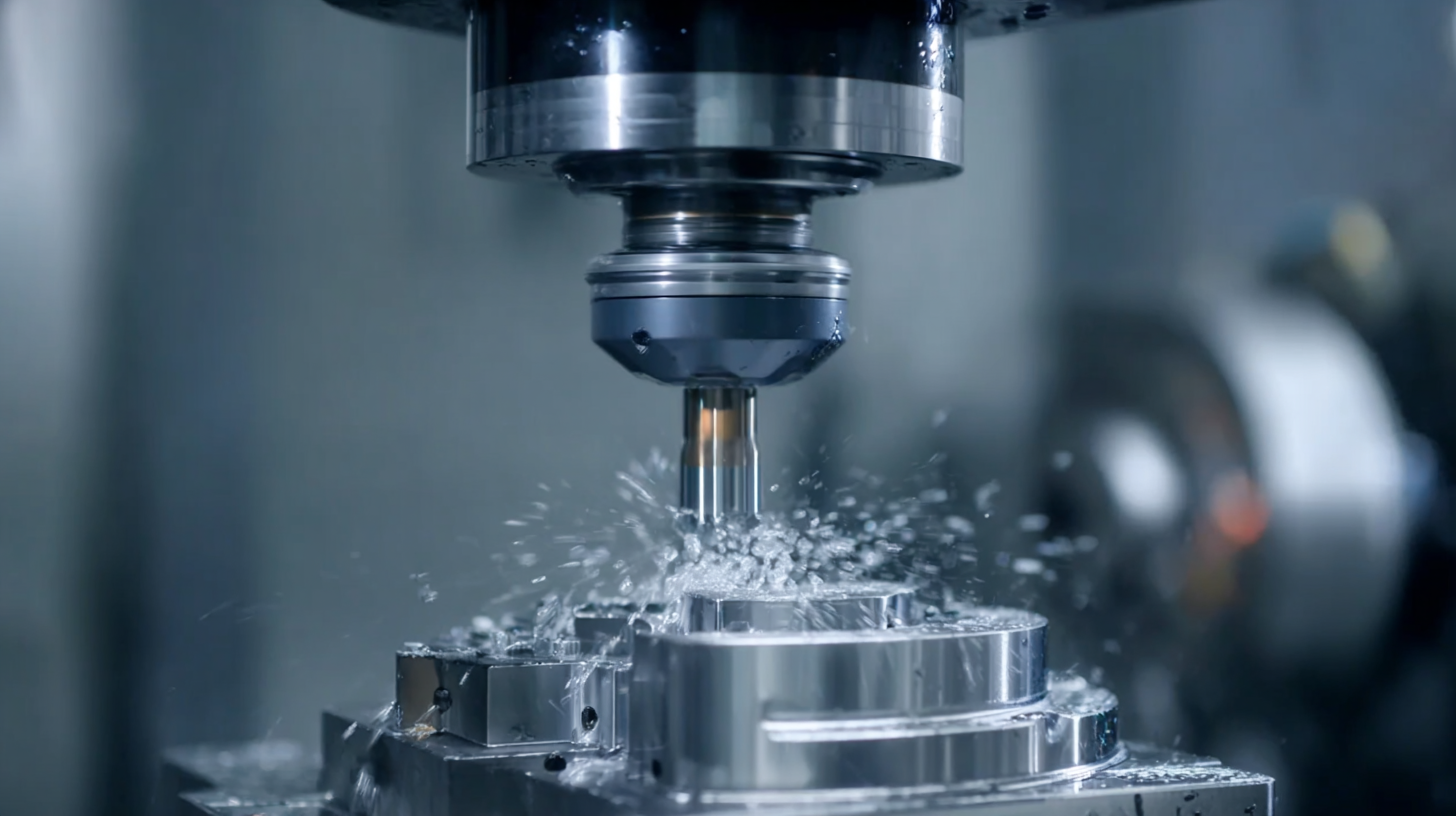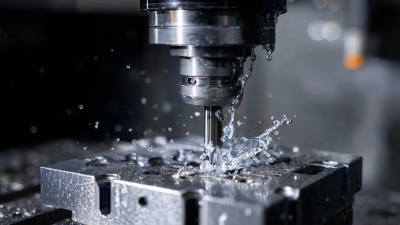
Revolutionizing Industry with Advanced Machining Solutions for Modern Manufacturing
In today’s rapidly evolving manufacturing landscape, the integration of advanced machining solutions is pivotal in driving efficiency and innovation. As industries strive to enhance productivity while maintaining high standards of precision, the demand for cutting-edge techniques and technologies has never been greater. This article explores the transformative impact of sophisticated machining solutions on modern manufacturing processes, highlighting how they can optimize workflows, reduce waste, and improve overall product quality. By embracing these advancements, companies can not only stay competitive but also lead the charge towards a more sustainable and technologically advanced future.

Join us as we delve into the various strategies and best practices that define the next generation of manufacturing excellence through the lens of machining solutions.
Harnessing Digital Technologies to Transform Traditional Machining Processes
 The integration of digital technologies into traditional machining processes is reshaping the manufacturing landscape, offering unprecedented efficiency and precision. By harnessing advanced data analytics, manufacturers can gain real-time insights into machine performance and production metrics. This allows for proactive maintenance strategies, minimizing downtime and ensuring that equipment operates at peak efficiency. Furthermore, the implementation of Internet of Things (IoT) devices enables seamless connectivity between machines and systems, paving the way for smart manufacturing environments.
The integration of digital technologies into traditional machining processes is reshaping the manufacturing landscape, offering unprecedented efficiency and precision. By harnessing advanced data analytics, manufacturers can gain real-time insights into machine performance and production metrics. This allows for proactive maintenance strategies, minimizing downtime and ensuring that equipment operates at peak efficiency. Furthermore, the implementation of Internet of Things (IoT) devices enables seamless connectivity between machines and systems, paving the way for smart manufacturing environments.
Moreover, the adoption of advanced software solutions, such as computer-aided design (CAD) and computer-aided manufacturing (CAM), significantly enhances production capabilities. These tools allow for the simulation of machining processes, enabling designers and engineers to refine products before physical production begins. This not only reduces material waste but also accelerates the time-to-market for new products. As companies embrace these digital advancements, they are not merely updating their operations; they are fundamentally transforming the way they approach manufacturing, leading to greater innovation and competitiveness in the industry.
Integrating IoT and AI to Enhance Precision in Machining Operations
The integration of IoT (Internet of Things) and AI (Artificial Intelligence) is transforming precision in machining operations, setting a new standard for modern manufacturing. By leveraging real-time data collection from sensors embedded in machinery, manufacturers gain insights into operational efficiency and machine performance. This connectivity allows for proactive maintenance scheduling, reducing unexpected downtimes and enhancing overall productivity. Moreover, IoT devices enable factories to monitor conditions such as temperature, vibration, and pressures, ensuring that every machining process adheres to optimal parameters for precision.

AI's role further amplifies the benefits realized through IoT. Advanced algorithms analyze vast amounts of data, identifying patterns and anomalies that human operators might overlook. Through predictive analytics, manufacturers can optimize their machining strategies, improving both accuracy and quality of the end products. Additionally, AI-driven automation can adapt machining techniques on-the-fly, responding to variable factors in production with remarkable agility. This synergy between IoT and AI creates a smart manufacturing ecosystem that not only improves precision but also fosters innovation, making it a cornerstone for the future of the industry.
Cost Reduction and Efficiency Boost through Automated Machining Techniques
In today's rapidly evolving manufacturing landscape, automated machining techniques are revolutionizing how industries operate. By integrating advanced machining solutions, businesses can achieve significant cost reductions and boost efficiency across various production processes. Automation minimizes human error, enhances precision, and accelerates production timelines, enabling companies to respond swiftly to market demands while optimizing resource allocation.
**Tips:** To fully leverage automated machining, businesses should consider investing in training for their workforce. This ensures employees can effectively operate and maintain advanced machinery, which is crucial for maximizing productivity. Additionally, regular maintenance schedules can prevent downtime and extend equipment lifespan, further contributing to cost-effective operations.
Moreover, implementing data analytics within automated systems allows manufacturers to monitor performance in real-time. By analyzing workflow and production metrics, companies can identify bottlenecks and optimize their processes continuously. This proactive approach not only leads to efficiency gains but also fosters a culture of innovation and improvement within the organization.
**Tips:** Collaborating with technology providers can also lead to customized solutions that cater to specific manufacturing needs, enhancing overall operational performance. Embracing these strategies can position companies at the forefront of the modern manufacturing revolution.
Impact of Automated Machining Techniques on Cost Reduction and Efficiency in Modern Manufacturing
Leveraging Data Analytics for Predictive Maintenance in Manufacturing Tools
The integration of IoT and advanced data analytics is transforming predictive maintenance in modern manufacturing, heralding an era of greater efficiency and reliability. As manufacturers harness the power of real-time monitoring, they can anticipate equipment failures before they occur, significantly reducing downtime and enhancing productivity. Predictive maintenance employs deep learning models that analyze sensor data, allowing manufacturers to optimize their operations and maintain peak equipment performance.
Tips: Consider implementing IoT sensors across your machinery to collect vital operational data. Regularly updating your analytics models can ensure that you're always prepared for potential disruptions. Additionally, training your staff to interpret analytics outcomes is crucial for maximizing the effectiveness of these predictive solutions.
The push towards smart factories is not just about automation but also about strategic decision-making rooted in data insights. With predictive maintenance technologies rapidly evolving, manufacturers can develop smarter operational strategies, resulting in better resource management and increased profitability. By prioritizing predictive maintenance, organizations can create resilient production environments that adapt to changing demands.
Tips: Leverage cloud-based platforms for easy access to analytics and predictive tools. Collaborate with technology partners who specialize in data analytics to stay at the forefront of predictive maintenance innovations. Remember, the goal is to shift from reactive to proactive maintenance practices, assuring not just operational continuity but also improved service delivery.
Future Trends: The Role of Additive Manufacturing in Advanced Machining Solutions
Additive manufacturing, often referred to as 3D printing, is rapidly transforming advanced machining solutions in modern manufacturing. According to a report by Wohlers Associates, the additive manufacturing market is projected to reach $35.6 billion by 2024, driven by its ability to produce complex geometries that traditional machining methods cannot achieve. This technology is enhancing design flexibility, reducing material waste, and shortening production times, making it an attractive solution for industries ranging from aerospace to medical devices.
As companies increasingly adopt additive manufacturing, we observe significant shifts in production paradigms. A study by the Boston Consulting Group indicates that over 90% of manufacturers expect to raise their investments in additive technologies within the next five years. This growth is accompanied by advancements in materials science, allowing for the use of metal and polymer blends that meet rigorous industry standards. The combination of additive manufacturing with traditional machining processes is fostering hybrid solutions, enabling businesses to optimize their workflows and boost efficiency. With these innovations paving the way, the future of manufacturing looks brighter than ever, reshaping how products are designed, developed, and delivered.

